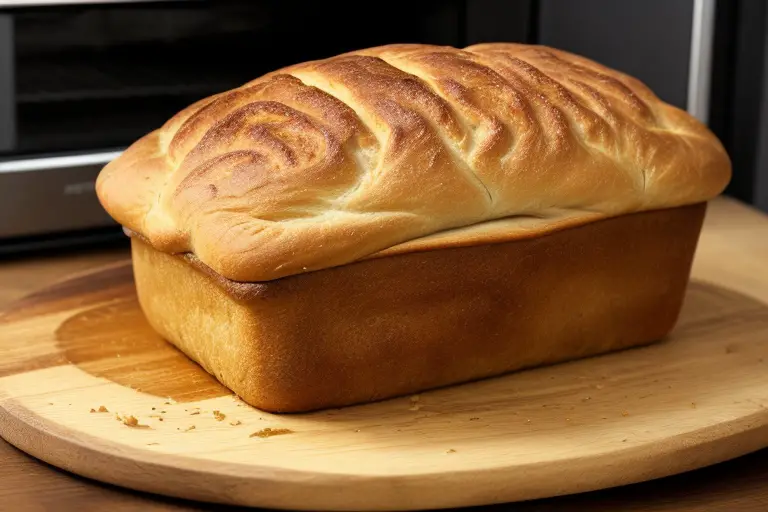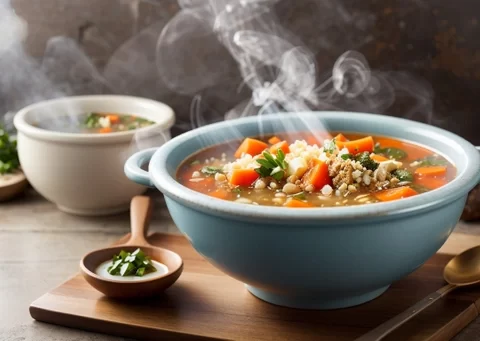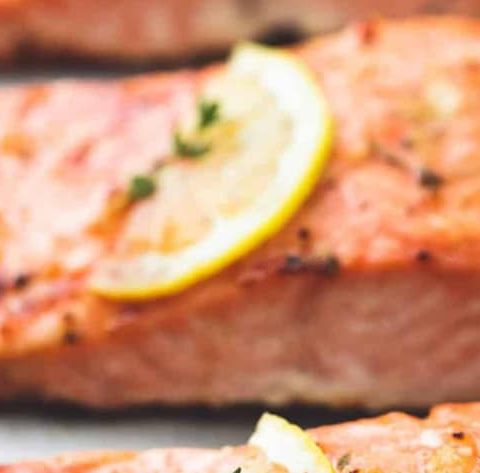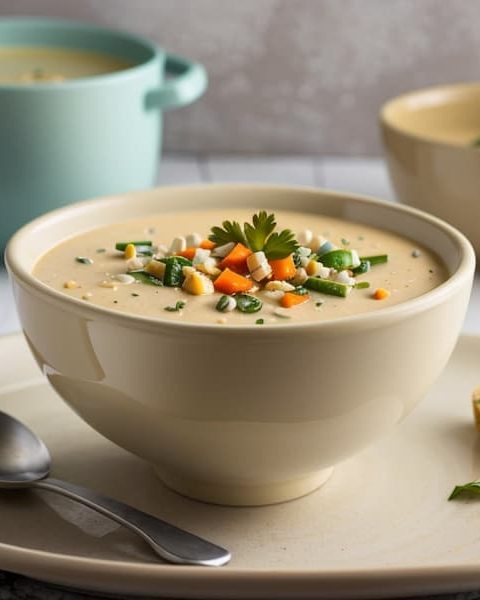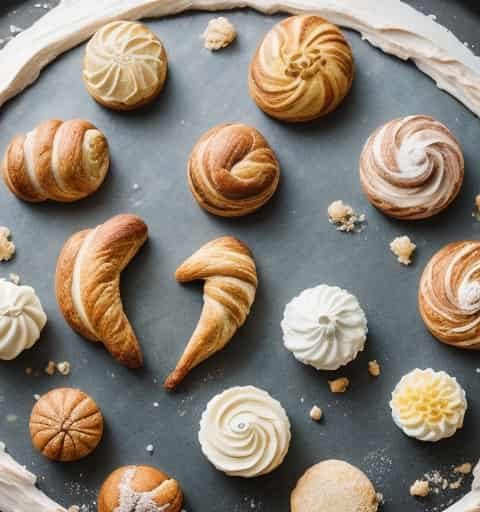Baking is a science and an art. It requires precision, patience, and creativity. Whether you are a beginner or a seasoned baker, there is always room for improvement.
Here are 12 tips and tricks that will help you take your baking skills to the next level.
1. Read the recipe carefully
Before you start baking, make sure you read the recipe thoroughly and understand all the steps and ingredients. Pay attention to the measurements, temperatures, and timings.
Some recipes may have special notes or tips that you should follow for the best results.
If you have any questions or doubts about the recipe, do some research or ask an expert.
2. Use quality ingredients
The quality of your ingredients will affect the taste and texture of your baked goods. Choose fresh and high-quality ingredients whenever possible.
For example, use real butter instead of margarine, pure vanilla extract instead of imitation, and fresh eggs instead of powdered ones.
Also, check the expiration dates of your ingredients and store them properly.
3. Measure accurately
Baking is not like cooking where you can adjust the ingredients as you go along. Baking requires exact measurements to ensure the right balance of flour, sugar, fat, liquid, and leavening agents. Too much or too little of any ingredient can ruin your recipe. Therefore, use measuring cups and spoons for dry ingredients and liquid measuring cups for wet ingredients. Alternatively, you can use a kitchen scale for more accuracy.
Try These Mary Berry Cakes Recipes
- Mary Berry Lemon Courgette Cake
- Mary Berry Coconut Cake Recipe
- Mary Berry Boiled Fruit Cake
- Mary Berry Blueberry Loaf Cake
- Mary Berry Mars Bar Cake
- Mary Berry Lemon Shortbread Biscuits
- Mary Berry Date and Banana Cake
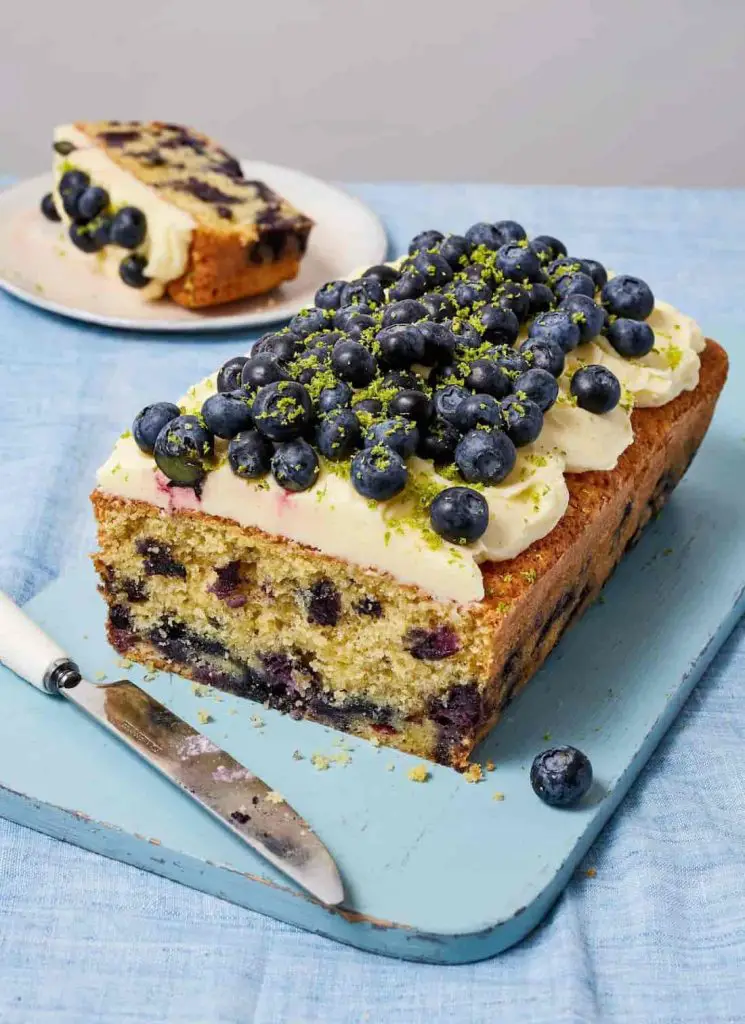
4. Preheat your oven
One of the most common mistakes that bakers make is not preheating their oven properly. If you put your batter or dough in a cold oven, it will not rise or bake evenly. To avoid this problem, preheat your oven at least 15 minutes before you start baking. Also, check the accuracy of your oven temperature with an oven thermometer and adjust it if needed.
5. Use the right bakeware
The type and size of your bakeware can make a big difference in how your baked goods turn out. For example, dark metal pans absorb more heat than light ones and can cause over-browning or burning. Glass or ceramic pans retain more heat than metal ones and can cause underbaking or soggy bottoms. To prevent these issues, follow the recipe’s recommendations for bakeware or use standard sizes and materials.
- Related: Hairy Bikers Lemon Drizzle Cake
6. Grease and line your pans
Another important step to ensure successful baking is to grease and line your pans properly. This will prevent your cakes, cookies, muffins, or breads from sticking to the pan and breaking apart when you try to remove them. You can use butter, oil, cooking spray, parchment paper, or silicone mats to grease and line your pans depending on the recipe.
7. Don’t overmix or undermix
Mixing is a crucial part of baking as it incorporates air into the batter or dough and develops gluten in the flour. However, overmixing or undermixing can lead to undesirable results such as tough, dense, or crumbly baked goods. To avoid this problem, follow the recipe’s instructions for mixing and use the right tools such as a whisk, a wooden spoon, a spatula, or an electric mixer.
8. Use room temperature ingredients
Most baking recipes call for room-temperature ingredients such as butter, eggs, milk, cream cheese, or sour cream. This is because room-temperature ingredients blend better with each other and create a smooth and uniform batter or dough. Cold ingredients can cause curdling or clumping which can affect the texture and appearance of your baked goods. To bring your ingredients to room temperature quickly, you can use a microwave, a warm water bath, or a countertop.
9. Don’t open the oven door too often
Opening the oven door too often can cause fluctuations in temperature and humidity which can affect how your baked goods rise and bake. It can also cause heat loss which can extend the baking time or result in underbaking. Therefore, resist the temptation to peek at your baked goods too often and only open the oven door when necessary such as to rotate the pan or check for doneness.
10. Test for doneness
One of the most important skills in baking is knowing when your baked goods are done. Underbaking or overbaking can ruin your hard work and waste your ingredients. To test for doneness, you can use different methods such as inserting a toothpick, a skewer, or a cake tester into the center of your cake, muffin, or bread and checking if it comes out clean or with a few moist crumbs. You can also use your senses of sight, touch, and smell to check for doneness such as looking for a golden brown color, feeling for a springy texture, or smelling a fragrant aroma.
11. Let your baked goods cool
After you take your baked goods out of the oven, don’t rush to cut or serve them right away. Let them cool completely on a wire rack before slicing, frosting, or storing them. This will allow them to finish cooking, set their structure, and release their moisture. If you cut or serve them too soon, they may fall apart, crumble, or dry out.
12. Have fun and experiment
Baking is not only a science but also an art. It allows you to express your creativity and personality through your creations. Don’t be afraid to have fun and experiment with different flavors, ingredients, techniques, and decorations. You may discover new combinations that you love or invent your own original recipes. Baking is also a great way to relax, enjoy, and share with others.
FAQs
What are some common baking terms that I should know?
Some common baking terms that you should know are:
- Creaming: Beating butter and sugar together until light and fluffy.
- Folding: Gently combine a light mixture such as whipped cream or egg whites with a heavier mixture such as batter or dough.
- Kneading: Working dough with your hands or a machine to develop gluten and elasticity.
- Proofing: Allowing yeast dough to rise in a warm place until doubled in size.
- Sifting: Passing dry ingredients such as flour or cocoa powder through a fine mesh sieve to remove lumps and aerate them.
What are some essential baking tools that I should have?
Some essential baking tools that you should have are:
- Measuring cups and spoons: For measuring dry and liquid ingredients accurately.
- Kitchen scale: For weighing ingredients more precisely especially for recipes that use grams or ounces.
- Mixing bowls: For mixing ingredients together in different sizes and materials such as glass, metal, or plastic.
- Whisk: For beating eggs, cream, sauces, or batters by hand.
- Wooden spoon: For stirring batters, doughs, or sauces by hand.
- Spatula: For scraping the sides of bowls or pans and folding mixtures gently.
- Electric mixer: For creaming butter and sugar, whipping cream or egg whites, or mixing batters or doughs more quickly and easily.
- Baking pans: For baking cakes, cookies, muffins, breads, pies, etc. in different shapes and sizes such as round, square, rectangular, loaf, muffin tin, pie dish, etc.
- Parchment paper: For lining baking pans to prevent sticking and make cleanup easier.
- Silicone mats: For lining baking sheets to prevent sticking and make cleanup easier.
- Oven thermometer: For checking the accuracy of your oven temperature and adjusting it if needed.
- Wire rack: For cooling your baked goods after taking them out of the oven.
How can I store my baked goods properly?
How you store your baked goods depends on the type of baked goods and how long you want to keep them. Generally speaking,
- Cakes: You can store unfrosted cakes at room temperature in an airtight container for up to 3 days or in the refrigerator for up to 1 week. You can store frosted cakes in the refrigerator for up to 1 week or in the freezer for up to 3 months. Make sure to wrap them well with plastic wrap or aluminum foil before freezing them.
- Cookies: You can store cookies at room temperature in an airtight container for up to 1 week or in the freezer for up to 3 months. You can also freeze cookie dough in balls or logs for up to 3 months and bake them from frozen whenever you want fresh cookies.
- Muffins: You can store muffins at room temperature in an airtight container for up to 3 days or in the refrigerator for up to 1 week. You
Conclusion
Baking is a rewarding and enjoyable hobby that can bring you satisfaction and happiness.
By following these tips and tricks, you can improve your baking skills and produce delicious and beautiful baked goods.
Remember to always read the recipe carefully, use quality ingredients, measure accurately, preheat your oven, use the right bakeware, grease and line your pans, don’t overmix or undermix, use room temperature ingredients, don’t open the oven door too often, test for doneness, let your baked goods cool, and have fun and experiment.
Happy baking!

